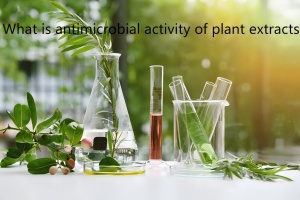What is antimicrobial activity of plant extracts

What Does Antimicrobial Activity Mean?
Antimicrobial activity is a plant's ability to stop the growth of or kill harmful microorganisms like bacteria, fungi, or viruses. It’s like nature’s way of fighting off infections—plants produce certain chemicals to protect themselves, and those same compounds can also help humans.
How Plant Extracts Fight Microbes
Many plant extracts contain bioactive compounds like flavonoids, alkaloids, and essential oils. These substances can damage the cell walls of bacteria or interfere with their ability to grow and spread. Some even disrupt the microbes' DNA or protein production.
Examples of Antimicrobial Plant Extracts
Tea tree oil is a classic example—it’s used in skincare for its powerful antibacterial and antifungal effects. Garlic extract is another one, often used for its broad-spectrum antimicrobial activity. Neem, oregano, rosemary, and thyme are also known for their ability to fight germs naturally.
Why They're Used in Skincare and Medicine
With growing concerns about antibiotic resistance, natural antimicrobials are becoming more popular. They’re often used in creams, soaps, and even wound care products. Plant extracts are also being researched as alternatives to synthetic preservatives in cosmetics and food.
Are They Safe to Use?
For most people, yes. But like with any active ingredient, some plant extracts can be too strong or irritating if not used properly. Always look for well-formulated products and do a patch test if you’re trying something new. The concentration and purity of the extract make a big difference.
Where Research Is Headed
Scientists are exploring more plants every year to identify new antimicrobial compounds. Many lesser-known herbs and roots from traditional medicine are now being studied in labs for their potential to replace or support conventional antibiotics.
